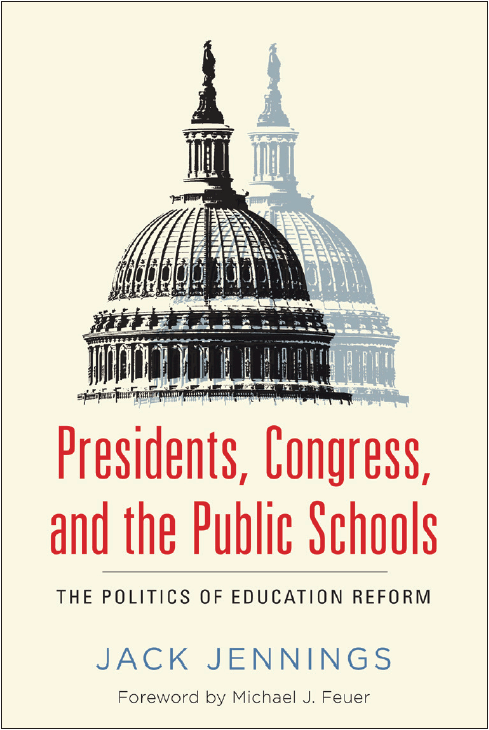Thompson: Jennings's Call for Education Policy Worthy of Our Democracy

Jack Jennings's Presidents, Congress, and the Public Schools is a must-read for anyone seeking to improve our public schools. Drawing upon a half century of political and education research, Jennings writes a history of federal involvement in school reform and makes sensible suggestions for the next era of school improvement.
Jennings chronicled the first generation of federal education reforms and their results. The ESEA Act of 1965 had big goals and it was well-funded. From the mid-1960s to the 1980s, often fragmented federally funded efforts only produced modest improvements and they did not bring equity. But, those gains now look pretty impressive in comparison to post-NCLB outcomes, especially since their funding did not increase in order to meet the ambitious goal of closing the Achievement Gap. To produce equity for the most disadvantaged students, who disproportionately were concentrated in high-challenge schools, a far greater investment into their entire learning environments would have been necessary.
Jennings then documents how and why NCLB accountability failed. He bluntly reminds us that "Tests do not a good education make.” Moreover, “When it came to measuring student progress in school, NCLB got it wrong.” Pulling it all together, Jennings’s analysis of NAEP testing results shows:
It is ironic that from the 1970s to the early 2000s. achievement generally rose and achievement gaps generally narrowed, which would seem to refute the Title I evaluation results used to support the shift to test-driven reform.
He also concludes:
The long-term NAEP results showed gains, especially for Black and Hispanic students, until 2008. A disturbing finding, though, is that since 2008, achievement has not increased for students except for 13-year-olds, nor have achievement gaps narrowed between racial/ethnic groups.
Jennings is judicious in summarizing the evidence about the effectiveness of Secretary of Education Arne Duncan, telling Lyndsey Layton of the Washington Post “The record will show these policies brought about minimum improvement. ... They also did considerable harm.”
Then Jennings turns to solutions. First, he calls for a vigorous debate regarding the new direction that federal education policy should take. While I applaud that invitation, teaching in an era of failed test-driven reforms has made me more risk-adverse. But, Jennings’s closing paragraph has finally convinced me:
The biggest lesson I have learned over a half century of involvement in education politics and policy is that if you are not working to implement your own agenda, then you are working off someone else’s This Week In Education: Thompson: Jennings's Call for Education Policy Worthy of Our Democracy - Linkis.com:
